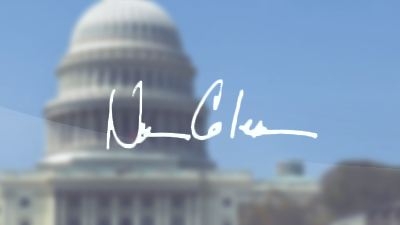Notes From Norm: An Uff Da Budget
Minnesotans are full of commonsense.
They know when it’s cold to dress in layers. Minnesotans understand the difference between hot dish and casserole. And, that there are folks who drink soda but real Minnesotans drink pop.
They also have a phrase for things like President Obama’s $4 trillion budget proposal unveiled this week.
“Uff da”.
There’s lots of variations of what exactly is meant when one exclaims “Uff da” but this much is clear: $4 trillion is a lot of Uff da in Minnesota and across America.
According to the website, www.justfacts.com:
“As of January 8, 2015, the official debt of the United States government is $18.1 trillion
This amounts to:
• $56,660 for every person living in the U.S.
• $147,681 for every household in the U.S.
• 103% of the U.S. gross domestic product.
• 540% of annual federal revenues.”
Since becoming President, Barack Obama has grown the national debt by roughly 8 trillion – a nearly 70% increase since being elected.
Of course, as evidenced by his most recent budget proposal, he’s not done wanting to add further to that debt.
In 2008, candidate Barack Obama called the then $9 trillion national debt “irresponsible” and “unpatriotic”.
And, lest we forget United States Senator Barack Obama’s words during a floor debate about increasing the national debt, here it is, courtesy of the World Wide Web:
“The fact that we are here today to debate raising America’s debt limit is a sign of leadership failure. It is a sign that the U.S. Government can’t pay its own bills. It is a sign that we now depend on ongoing financial assistance from foreign countries to finance our Government’s reckless fiscal policies. … Increasing America’s debt weakens us domestically and internationally. Leadership means that “the buck stops here.” Instead, Washington is shifting the burden of bad choices today onto the backs of our children and grandchildren. America has a debt problem and a failure of leadership. Americans deserve better.”
At the time, Senator Obama was railing against a motion to raise the national debt ceiling to $9 billion.
From time to time the President wishes to convince Americans he is mindful of the state of our national debt.
He appoints Commissions on fiscal responsibility – then ignores their advice.
Back in 2009 the President said in his opening remarks at the ironically named “Fiscal Responsibility Summit “…I refuse to leave our children with a debt that they cannot repay, and that means taking responsibility right now, in this administration, for getting our spending under control.”
Importantly, before these serious remarks, the President preceded them by making this promise: “That’s why today, I’m pledging to cut the deficit we inherited by half by the end of my first term in office.”
I’m no math wizard, but I am pretty sure that half of $9 trillion is not $18 trillion.
Now, it would be unfair to take issue with the entirety of the President’s latest budget proposal.
It does have necessary increases for national defense – investment in infrastructure – and there could be some legitimate progress in eliminating sequestration.
But, packed into $4 trillion is $1 trillion in new taxes. And, as Speaker of the House John Boehner rightfully points out, it “…contains no solutions to address the drivers of our debt, and no plan to fix our entire tax code to help foster growth and create jobs.”
In a further effort to budget with smoke and mirrors, the Wall Street Journal points out that the Obama budget cites “…an improving economy in calling for an end to what the White House termed “mindless austerity” measures and a pivot from a crisis-era focus on deficit-cutting to a period of economic reinvestment.”
Only a President who criticizes a $9 trillion national debt while deliberately increasing it 70% to $18 trillion would have the audacity to suggest that such an increase in spending represents “mindless austerity.”
This is now the place where the value of a GOP Majority in the U.S. Senate and the U.S. House will be critically important.
Not to reactively stop the President from piling more debt onto the future of American’s next generation of citizens.
But, to present credible ideas and solutions for how we our country can be safe, clean and affordable without massive tax increases, expanded government spending and irresponsible growth of our national debt.
The President has a vision. The Congress should have a vision. From there, the hard work has to begin to formulate a budget that is far better than what the President has proposed – and can mean far better for the future of our country?
Is it possible that such a budget can be achieved?
If our elected leaders heed the demands of the American people from our last election, the answer should be a polite, firm and enthusiastic version of another well-worn Minnesota phrase: You Betcha.


